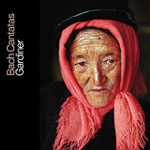
Cantatas Vol 4: 6th and 7th Sundays after Trinity
 $55.80
Out of Stock
$55.80
Out of Stock6+ weeks add to cart
J.S. BACH
Cantatas Vol 4: 6th and 7th Sundays after Trinity
Joanne Lunn / Michael Chance / James Gilchrist / Stephen Varcoe / Monteverdi Choir / English Baroque Soloists / John Eliot Gardiner
[ Soli Deo Gloria / 2 CD ]
Release Date: Thursday 1 October 2009
This item is currently out of stock. It may take 6 or more weeks to obtain from when you place your order as this is a specialist product.
Gardiner's Gramophone and BBC Music Magazine award-winning Bach Cantata series on his hugely successful label, Soli Deo Gloria, releases volume 4 in the series featuring Cantatas for the Sixth and Seventh Sunday after Trinity. Recorded live in July and August 2000.
Following a moving concert commemorating the 250th anniversary of Bach's death, set within the magical surroundings of the Scottish island of Iona, John Eliot Gardiner, The Monteverdi Choir and The English Baroque Soloists continue on their Bach pilgrimage and head to Ansbach to perform at the prestigious Ansbach Bach Festival - "The Mecca…of Bach celebrations" as described by Gardiner.
The programme opens with BWV 9 Es ist das Heil uns kommen her (Salvation has come to us). Although the composing score and original performing parts date from 1732-5, formally and stylistically this cantata belongs to the chorale cantatas of 1724-5. Evidence of this and of Bach's genius in being able to write both clever and fun-loving music at the same time can be seen in the soprano and alto duet Herr, du siehst statt guter Werke.
This is then followed by the well known chamber cantata BWV 170 Vergnügte Ruh, beliebte Seelenlust (Pleasant Rest, Beloved Soul's Joy), expertly sung by internationally renowned counter-tenor, Michael Chance. This is the first of two solo cantatas for alto that Bach wrote in the summer of 1726 and comprises of the three large arias for alto, between which are placed two recitatives. A highlight of the three is the first, an aria of pure enchantment, which tells, through rich and passionate music, that "pleasant rest" can be attained only though union with heaven.
The programme ends with the very moving funeral motet Der Gerechte kommt um (See, the righteous must die), attributed to Bach, an incredibly beautiful five-voiced Latin motet composed by Johann Kuhnau. The magnificence of this motet made this very popular with both the choir and orchestra thereby resulting in it being used as a regular encore on the Bach Cantata pilgrimage.
Thirty miles east from the hustle and bustle of a busy Edinburgh hosting its world famous festival, we join John Eliot and the Monteverdi forces in the collegiate church of St. Mary's situated in the modest, tranquil market town of Haddington, Scotland.
All three of Bach's cantatas for this day have masterly opening movements. The first, BWV 186 Ärgre dich, o Seele, nicht (Trouble thyself not, O soul), comprises eleven movements and is structured in two parts. A movement that stands out is the glorious duet for soprano and alto (No.10), in which the crucial injunction 'Sei, seele, getreu!' ('O soul, be true!') is reserved until the last two bars.
We then hear BWV 107 Was willst du dich betrüben (Why wilt thou trouble thyself, oh my dear soul), a chorale cantata set per omnes versus, that is, with all the verses of a hymn set unaltered. Bach here cleverly overcomes the limitations of being confined to a rigidly structured hymn without monotony or repetitiveness through the usual devices of changing the voice type in the arias, the key and the metre.
The final chorale, BWV 187 Es wartet alles auf dich (They are all waiting on thee) is again structured in two parts and comprises of music that is both gentle and seductively beautiful. Bach clearly supports this belief by parodying the music of this cantata a decade later in his G minor Missa (BWV 235).
Tracks:
Cantatas for the Sixth Sunday after Trinity
BWV 9 - Es ist das Heil uns kommen her
BWV 170 - Vergnügte Ruh, beliebte Seelenlust
Motet: Der Gerechte kommt um
(recorded: St Gumbertus, Ansbach)
Soloists: Joanne Lunn | Michael Chance
James Gilchrist | Stephen Varcoe
Cantatas for the Seventh Sunday after Trinity
BWV 186 - Ärgre dich, o Seele, nicht
BWV 107 - Was willst du dich betrüben
BWV 187 - Es wartet alles auf dich
(recorded: St Mary's, Haddington)
Soloists: Katharine Fuge | Richard Wyn Roberts
Kobie van Rensburg | Stephan Loges
The Monteverdi Choir | The English Baroque Soloists | John Eliot Gardiner


